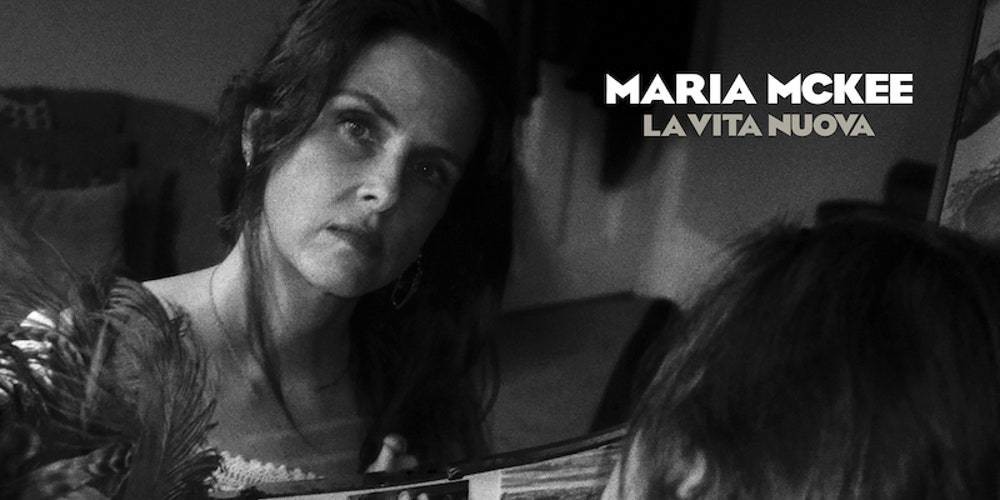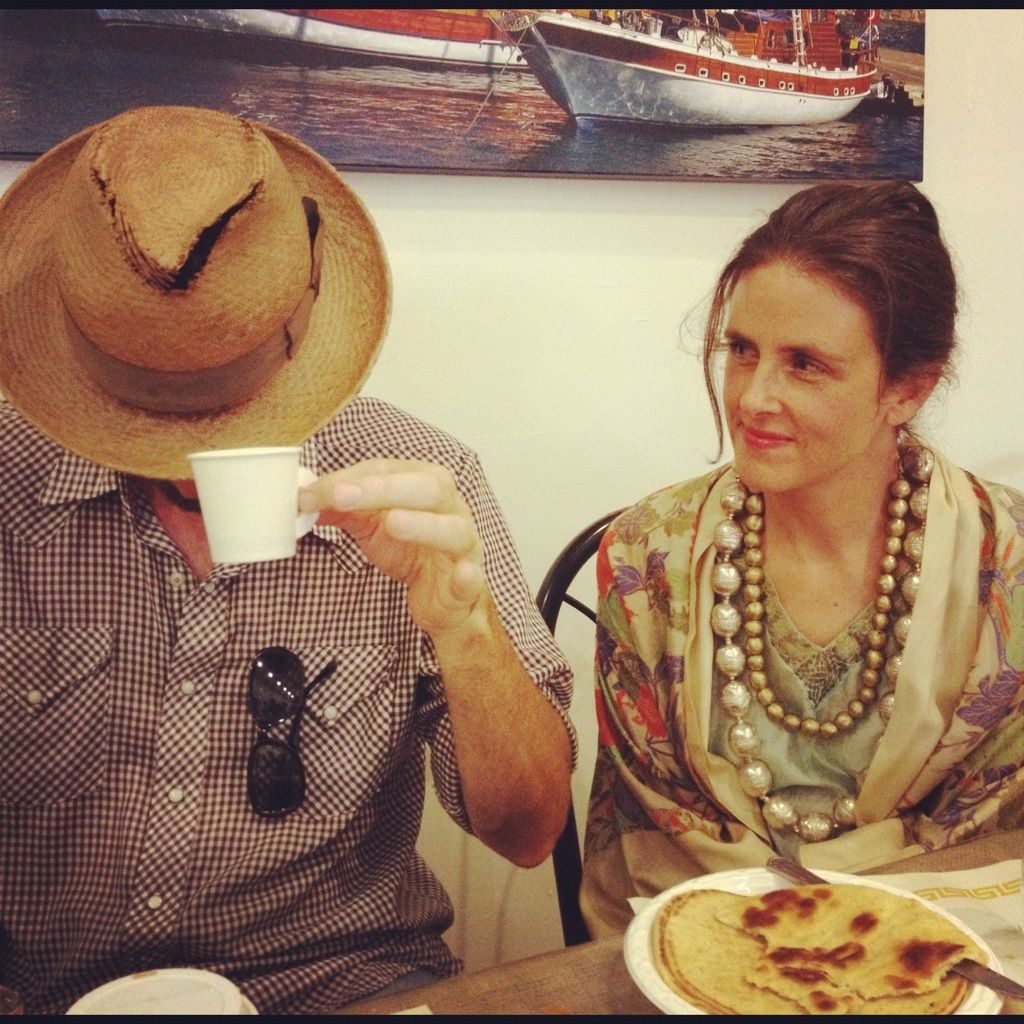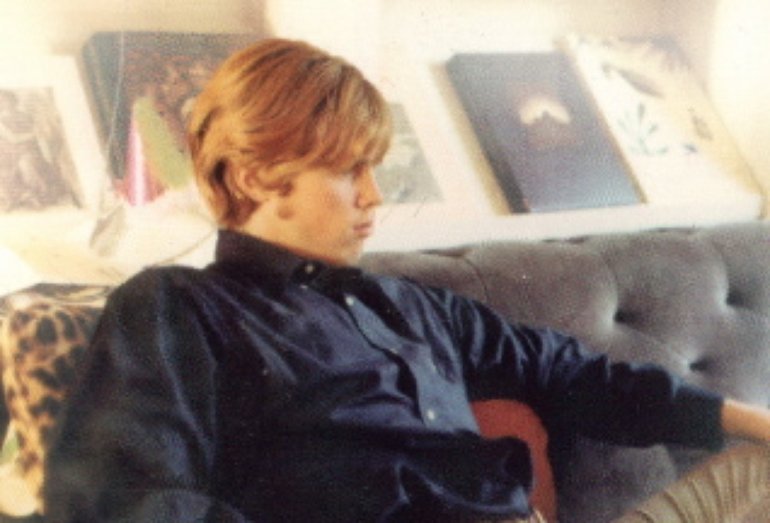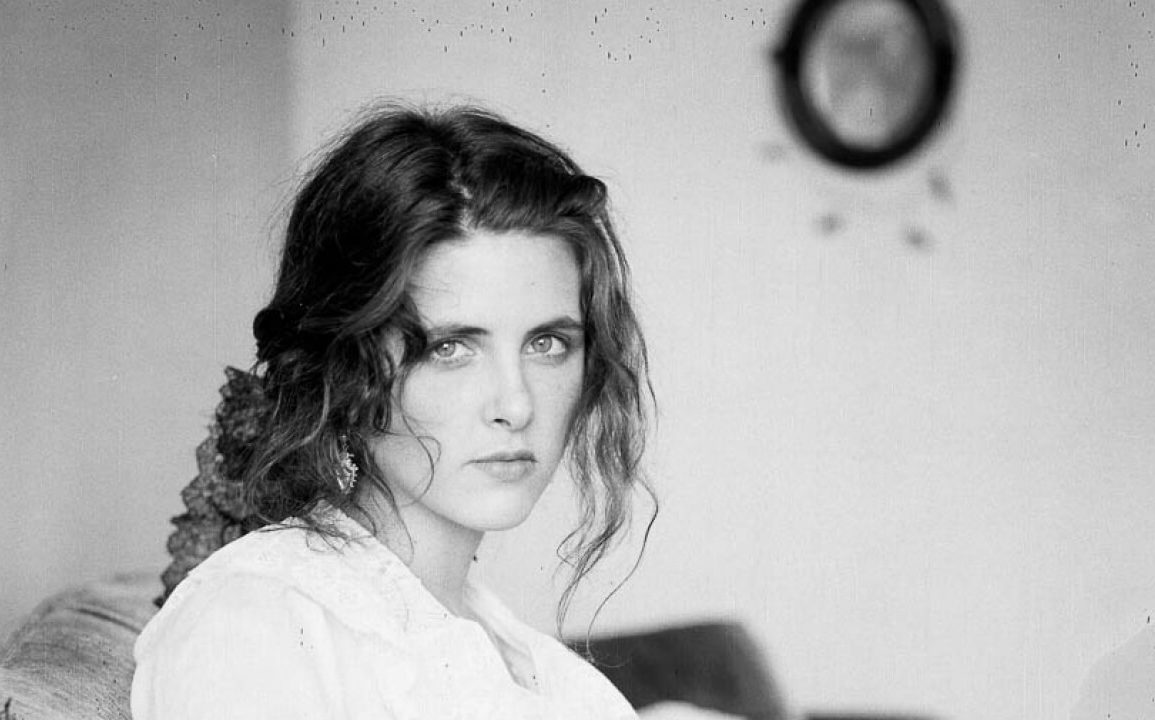Maria McKee lived the early years of her musical career as the singer of the country rock band Lone Justice. Her song “If Love Is a Red Dress (Hang Me in Rags)” was featured in the Pulp Fiction soundtrack, making her further dominant in the memory of popular culture. However, following her 2007 record Late December, she apparently disappeared from the music scene.
Her new album La Vita Nuova is, therefore, a celebration of McKee’s glorious return. Recently released, the record is both a nostalgic look into her past and a fresh page in her career. It goes without saying that it’s one of this year’s bright treasures so far. We soon felt the need to speak to the artist herself.
We chatted with Maria about her new album, her process of enlightenment, her brother Bryan MacLean, her love towards literature and more. Enjoy.
Click here for the Turkish version of the interview.

First of all, how are you? Hope you are staying safe in the days of pandemic…
I’ve actually been feeling a little weird this past week. I don’t have a cough, but I’ve been feeling a little bit feverish.
Oh, take care.
It hasn’t progressed into anything. I’ve just been feeling a little strange, so I’ve been staying in bed.
I think that’s the best move. In addition to drinking herbal tea, etc…
Exactly.
Let me congratulate you for your new record, La Vita Nuova. I think it is refreshingly haunting and intimate. And considering the long road you’ve taken across your early days with Lone Justice up to the baroque sound of this album, it is practically a new chapter in your career as well, am I right?
Thank you! Yeah. I hadn’t made an album in 13 years, so that tells a lot.
As you have said, it has been 13 years. During this period you came out as queer, became an advocate for LGBTQ rights, began living in two cities and reshaped your love for literature. You have been active in different ways.
Yeah, and in the making of the album, these experiences really drew me a map. That map sort of opened a door and I walked through it.

There are lots of literary influences in the album and in the lyrics. In a lyric for “The Last Boy” you say: “I have an existential understanding of / What the poets mean when they refer to love”. Have you had, let’s say, a grand enlightenment during the recent years? If so, how has that experience paved the way for the album?
I was in a lot of pain. I was living a life that was buttoned down a little bit. I can’t really explain, but it was almost like I was living in a shadow. I just couldn’t find desire, and it had started to break my heart. I am still married, and my husband (the director Jim Akin) is like my brother, my father… We’re family but we did not have a romantic marriage for a long time. We were just friends, really. I thought that would be okay, that would be enough. But it wasn’t. I felt regret and longing to a certain degree that my heart was breaking, and there was nothing to do but to write songs. It was the only thing that saved me.
So it was the light at the end of a dark tunnel.
Yeah.
La Vita Nuova has a complex map of influences involving the poets Keats and William Blake. Can you give us a basic guideline involving your greatest inspirations?
My grandmother on my mother’s side studied Esoteric Arts. She was into Rosicrucianism and practiced the Occult. She was also an intellectual, she studied and wrote poetry. I have always kept those poems with me. I have admired a particular poem of hers about a little dog. And that was the inspiration for my song, “Little Beast”. William Blake, on the other hand, is one of my spirit guides…
I guess he was the spirit guide for lots of people, and was so ahead of his time…
Yeah. He’s important. I have spent time with him on the astral plane.
Wow.
He’s shown me some extraordinary things.
You borrowed the title La Vita Nuova from a work by Dante Aligheri. How does Dante’s legacy reflect the album? How strong are the two connected?
This album is not a version of (Dante’s) La Vita Nuova, but I read the book while I was making it. I was very much influenced by Dante’s approach to writing about the muse from afar. For me, I had to focus my attention to the muse that I created in my head. It was the embodiment of my desires. Not a real or living muse, but a phantom that I created. For me, (Dante) is the best. He was the one most successful in keeping the muse as a guide throughout his entire work life, and also in transforming the muse into exactly what you need it to be for creativity.
This phantom is your guide throughout your work. That was the process for me. It was also the philosophy of this particular literary movement called Fedeli D’Amore. It speaks to such a degree about desire, the beloved, the beauty and all the things you project on the muse that it elevates one to this divine state which they call dosis, where you are in a state of hypnosis, in a higher state of consciousness. That’s what happened to me. I felt that I was elevated.
You mention a certain muse in the song “Page of Cups”. Is that the same muse?
I did create a muse that I used as a life model, a mantra. It came upon me like a vision. Creativity arrives all at once, you never know if it will happen again. This may as well be the last album I ever make.
I hope not! (mutual laughs)
I hope not, but you just don’t know. I don’t write unless I have to. I don’t write unless it’s coming out of me in obsessive ways. I can’t just go in a room and write mediocre things, which is why I don’t write albums very often. There has to be a drive that makes you feel like you’ll die if you don’t.
One thing I have noticed about this record is that your vocal performance has become a lot more operatic and has reached new heights. Do you have a secret recipe for people who want to improve their vocal talents?
(laughs) Thank you. I had to become more operatic in a way. I learned how to sing above my previous performances, and it was safer for my vocal cords. It’s hard to explain. It was a way of means to and end, really.

The memory of your brother (Bryan MacLean, the legendary singer of the band Love) is present in songs like “Page of Cups”, “I Just Want to Know That You’re Alright”, and, if I’m not wrong, “However Worn”.
Yeah. Bryan is actually present in the entire album. He was my main influence, artistically, and he was my best friend. You know, father, brother, soulmate, everything. In his youth, Bryan was influenced by some big names in the musical theater: Stephen Sondheim, Leonard Bernstein, Rodgers & Hammerstein and all that stuff.
I think the reason people have said that the song “I Just Want to Know That You’re Alright” evokes Love is its chord structure, not the melodies. It sounds like something Bryan would have done. And the strings, too.
Although the songs are immensely nostalgic, it seems that you’re particularly looking ahead to the future. Are you excited by what future may bring?
My life has always been shaped by surprises, so I have no idea. I’m open to surprises. I’ve created a life in front of myself where spiritually I have no fears and romantically I have no containments. My heart is free and open. Creatively, the sky is the limit. I have no idea.
Maybe the current situation the world foreshadows –I’ll put a pun here- a new life for us?
(laughs) All I can do is hope, you know. I think everyone’s gonna slow down, and they’re not gonna take things for granted. I hope we’ll learn how to help each other. We’ll see.



